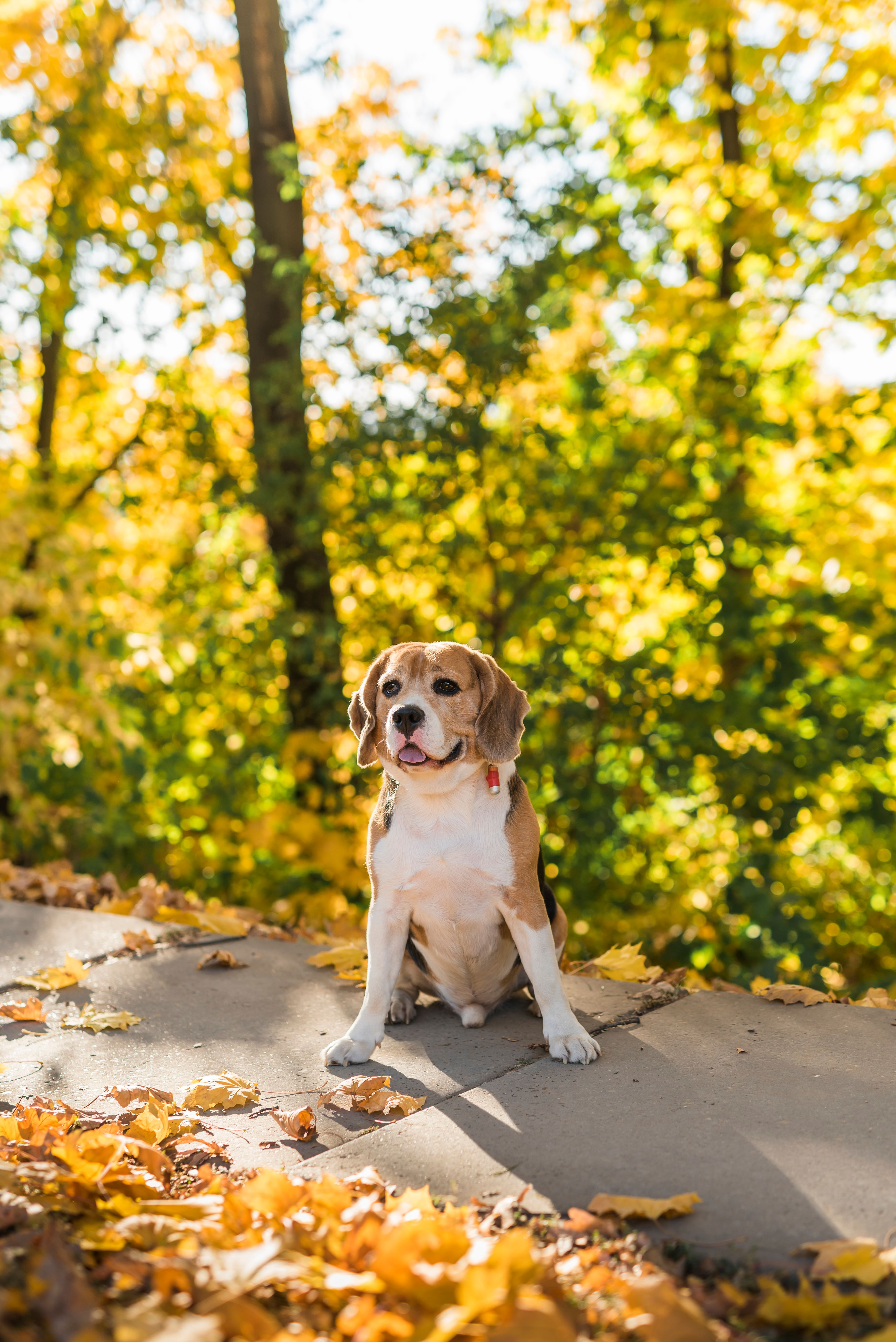By: Dr. Veja Tillman, DVM
It’s officially Fall. The leaves are changing color, the weather is more pleasant, and the holiday season is upon us. We love this time of year and so do our pets. We must make sure that we protect our pets from hidden dangers of this season. Below are some tips to help keep your pets safe during the autumn months.

Rodenticides (Rat Poisons)
As the days are getting shorter and cooler, mice and rats will begin looking for a place to call their winter home. They are notorious for getting into garages and sheds to protect them from the elements over winter. To control unwanted visitors many homeowners will put out rat poisons. If you use these products in your home, make sure to keep them out of reach of pets. These chemicals are toxic and potentially deadly for your pets. There are several different types with different active ingredients. Whether your pet eats the poison directly or your pet ingests a poisoned rodent each of the products has the potential to kill your pet.
If your pet has ingested a rodent or rat poison, they should be taken to your veterinarian immediately. Make sure to bring the label from the product (or a picture of the entire box) with you so your veterinarian can determine the right course of treatment for your pet.
Remember, when placing this product around your home make sure to keep it away from all your pets and quickly pick up any deceased rodents around your yard to prevent accidental ingestion and exposure to these poisons.
PLANT AND MUSHROOM POISONING
Mushrooms tend to pop up around this time of the year. While not all mushrooms are poisonous, it can be hard to tell which ones are safe. For this reason, it is best to consider all mushrooms growing in your yard or out in nature poisonous.
If you see mushrooms growing in your yard, pick them from the root and throw them out. Scan your yard for them frequently as mushrooms seem to pop up overnight. Also, look out for mushrooms when you take your pets for a walk.
If your pet does munch on a mushroom, call your vet immediately. Mild toxicity can cause gastrointestinal upset, like vomiting and diarrhea. Severe toxicity can cause neurological, kidney, and liver damage, or even death depending on what type of mushroom was eaten.
Chrysanthemum flowers, although very pretty, are toxic. If your pet ingests any part of the chrysanthemum plant it can cause an upset stomach, vomiting, diarrhea, drooling, unsteady uncoordinated movements, and skin rashes.
Any part of the Autumn Crocus plant is extremely toxic to your pet. It can cause multi-system organ damage to the lungs, stomach, kidneys, liver, and nervous system. Symptoms can include loss of appetite, vomiting, diarrhea, bloody diarrhea, weakness, seizures, and even death.
ANTIFREEZE
Fall is usually the time when some pet owners change the antifreeze in their vehicles to keep them running smoothly. But this product is highly toxic and should be kept far out of your pets reach. Antifreeze contains a chemical called ethylene glycol and pets are attracted to its sweet taste. However, if a pet ingests even a small amount, there can be serious, and even fatal, consequences. Signs of early poisoning include acting drunk or uncoordinated, excessive thirst, and lethargy.
If you fear your pet has ingested antifreeze, take them to your veterinarian or your local emergency hospital immediately for treatment with an antidote to prevent acute kidney failure.
Clean up spills of antifreeze immediately. You may also consider switching to propylene glycol-based coolants. They are not completely nontoxic, but they are much less toxic than other engine coolants.
ALCOHOL
Whether you are sipping a hard apple cider or enjoying your favorite mixed drink, pets should never be given alcohol. It depresses the nervous system and can also be damaging to the kidneys. Warning signs your pet has consumed alcohol include vomiting, disorientation, and difficulty urinating. Other more serious signs include collapse and coma.
Call your vet immediately if your pet has consumed alcohol. The best remedy is to not expose your pet to alcohol. Call your veterinarian if you notice your pet is acting lethargic or has vomiting or diarrhea. These could be signs your pet has ingested something they shouldn’t have. Talk to your veterinarian, even if you are not sure you should bring your pet in for evaluation.
Stay safe and keep your pets safe.
If your furry kid has had contact or ingested any of the items on this list call your veterinarian for help immediately. If your pet has been exposed to something you are not sure of and it is not on this list, contact one of the Animal Poison Centers below.
Pet Poison Help Line – (855) 764-7661
ASPCA Animal Poison Control – (888) 426-4435
ABOUT DR. TILLMAN
Dr. Tillman is a 2002 graduate of Tuskegee University School of Veterinary Medicine. Her veterinary practice and work experience focuses on health and wellness of pets. She is the owner of Just 4 Pets Wellness Center and can be reached at 239-270-5721.








